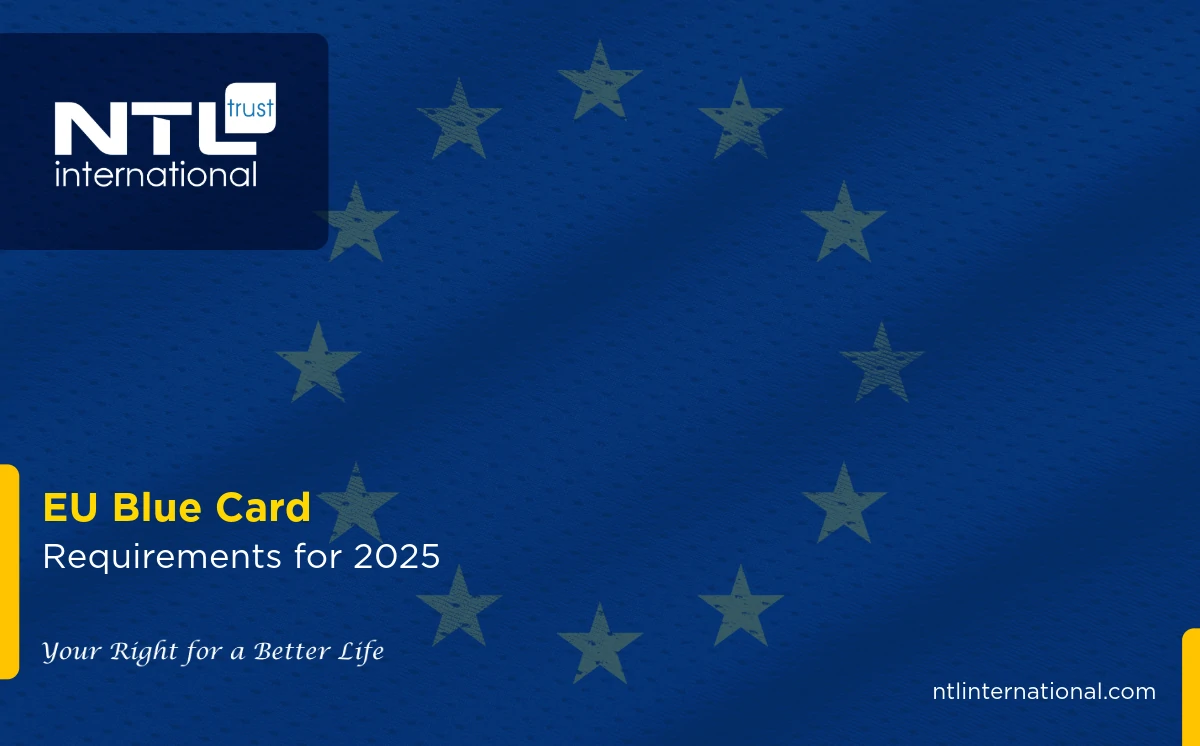
The requirements for the EU Blue Card vary across member states, as there is no unified system at the EU level. Each country has its conditions, typically high academic qualifications, a job offer from an approved employer, and a specific minimum income threshold. It is important to note that the EU Blue Card is available in most Schengen Area countries, excluding Denmark and Ireland, which do not participate in the program.
Key Requirements for the EU Blue Card in 2025
Minimum Salary Threshold:
Each country sets its minimum salary requirement for applicants. For instance:
-
- Germany: €58,400 (or €45,552 for shortage occupations, based on 2024 rates).
- France: €55,419 annually.
- Netherlands: Approximately €5,670 per month (as of 2024 rates).
Qualification Recognition:
-
- All countries require a recognized university degree or an equivalent qualification.
- Some may demand additional recognition of foreign credentials, such as using the Anabin system in Germany for degree evaluation.
Job Offer Requirements:
-
- Applicants must have a binding employment contract or a formal job offer.
- Priority is often given to candidates in shortage occupations (e.g., IT, engineering, and healthcare).
Language Requirements:
-
- Most countries do not impose strict language requirements for obtaining the Blue Card.
- However, proficiency in the local language may be necessary for certain professions, such as medical roles in Germany or Austria.
Processing Times:
-
- Application processing times vary significantly, ranging from a few weeks in countries like Estonia to several months in countries like Italy.
Transition to Permanent Residency:
-
- The duration required to transition to permanent residency differs across countries:
- Germany: 33 months (or 21 months with sufficient German language skills).
- France: 5 years of cumulative residency within the EU.
- The duration required to transition to permanent residency differs across countries:
Family Reunification:
-
- Family members typically receive residence permits and the right to work.
- Specific policies, such as waiting periods or proof of financial stability, vary by country.
Targeted Professions:
-
- Certain countries focus on specific sectors or professions due to local labor shortages (e.g., IT in Finland, healthcare workers in Belgium).
Schengen Area Countries Participating in the EU Blue Card Program:
The EU Blue Card is widely available across the Schengen Area. Participating countries include:
The EU Blue Card offers broad accessibility in the Schengen Area, but the application requirements and conditions differ between countries. For those interested in this opportunity, it is beneficial to provide tailored guidance for each country to help clients choose the best destination based on their qualifications and objectives.
Are you really familiar with the weirdest sights in Türkiye?
Here are five dazzling places you will discover that there is more to Turkey than Topkapi Palace in Istanbul or the rock formations in Cappadocia:
Nurses are invited to Germany
A golden opportunity for nurses to develop themselves and to secure a better life for their families as well in one of the best European countries for living and work.
Chinese Green Card after March 2020
The Chinese “Green Card”, which is the world’s hardest green card to obtain, even for foreigners living there for several years. On March 27, 2020, China ended a consultation on new regulations that qualify foreigners to obtain permanent residency, based on education, income and work experience.
Skilled Workers are Invited to Germany
After March 2, 2020, Skilled Workers are Invited to Germany.
Are you a Chinese Investor? Then you should consider the Turkish CBI
Months after economic & social turmoil in China, and the ongoing coronavirus outbreak, a growing number of Chinese investors, especially Hong Kong residents, are considering leaving. They are already planning a move to start a new life overseas.
Are you really familiar with the weirdest sights in Türkiye?
Here are five dazzling places you will discover that there is more to Turkey than Topkapi Palace in Istanbul or the rock formations in Cappadocia:
Nurses are invited to Germany
A golden opportunity for nurses to develop themselves and to secure a better life for their families as well in one of the best European countries for living and work.
Chinese Green Card after March 2020
The Chinese “Green Card”, which is the world’s hardest green card to obtain, even for foreigners living there for several years. On March 27, 2020, China ended a consultation on new regulations that qualify foreigners to obtain permanent residency, based on education, income and work experience.
Skilled Workers are Invited to Germany
After March 2, 2020, Skilled Workers are Invited to Germany.
Are you a Chinese Investor? Then you should consider the Turkish CBI
Months after economic & social turmoil in China, and the ongoing coronavirus outbreak, a growing number of Chinese investors, especially Hong Kong residents, are considering leaving. They are already planning a move to start a new life overseas.





